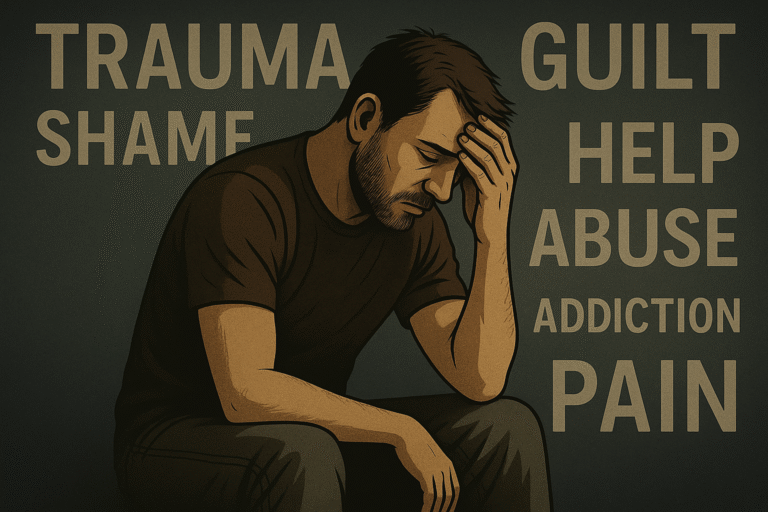“Change is never painful, only the resistance to change is painful.”
— Gautama Buddha
I knew quitting alcohol was the only choice. What I didn’t anticipate was how alone I’d feel afterwards. Having observed loneliness in sobriety mentioned in a few communities, here’s my take. Being sober quickly showed me how isolated my drinking had made me. Isolation was also a factor in many relapses. Friends vanished. A WhatsApp message became a surprise. For a while, loneliness felt worse than the drinking. But gradually, step-by-step, I rebuilt something deeper. If you’re feeling lonely in sobriety, this post is exactly what I wish I’d had back then—at the start, when everything seems hopeless. Looking back, hitting 100 days was when the shift really started. Here’s what happened.

Why Sobriety Often Feels Lonely
Sobriety often means losing the social fabric alcohol provided. Here in the UK, nearly every social event involves alcohol. Meeting an old friend? Go for a pint. After work night out? Pub. Going on a date? Let’s meet for a drink. My friendships had begun eroding years ago, one by one drifting away. Alcohol wasn’t the only factor, but it certainly exacerbated the issue.
When your social circle revolves around drinkers, who can you turn to? Usually yourself—your mind, which initially is fragile, recovering, and missing its usual chemical comforts. Want to socialise without risking relapse? Avoid it. At my age, as an old dance music enthusiast, a rare night out was planned locally. Now, I’ll avoid it. Just can’t risk it—I’m not ready for sober socialising yet. More isolation follows. Social media? Full of perfect pictures and “out with my bestie” posts—families, friends, drinks flowing. All leading to increased withdrawal and loneliness. I’ve shut all my personal ones down. Doubt I’ll go back.
My Loneliest Moments
Like many in alcohol recovery, I’ve faced several deeply lonely moments. Weekends with no calls, no messages, no one to talk to. One vivid memory is walking past a local pub I had visited with Isla when she stayed—memories of happier times. Instead of returning home with her, I walked alone, back to an empty flat. Silence. No daughter to cook breakfast for the next morning. My next social interaction would only come at work on Monday. Alcohol crossed my mind—that tempting escape—but I knew it would only end badly. Loneliness in sobriety rebuilding is better than a hospital bed still alone.

What Actually Worked for Me
1. Building a Structured Routine
I initially dreamt big but quickly realised small steps mattered most. Establishing a predictable daily routine restored purpose. Even tiny habits, like making a healthy breakfast, set a consistent rhythm and eased isolation. Distancing myself from old bad habits bit by bit.
2. Starting a Journaling Habit
Journaling became my emotional release. It clarified feelings of loneliness and highlighted daily achievements, providing emotional clarity and greater self-awareness. Journaling showed me what worked, what didn’t, and clarified the person I aspired to become. I have my dream, one year from now. I’ll be a different man.
3. Committing to Fitness
Regular exercise significantly boosted my mood and mental health. Structured fitness routines increased my confidence and provided a positive focus away from loneliness. Fitness especially helped me cope during tough times after Isla’s departure—essentially helping me manage grief. Gradually, things improved.
4. Joining Groups and Communities
Connecting with others in recovery through AA, SMART Recovery, or online forums offered immediate relief. Sharing experiences and mutual support profoundly reassured me. Just talking openly helped enormously, particularly when anonymous. Counselling sessions were crucial—I pinpointed underlying issues. Progress isn’t instantaneous, but it’s possible through honesty and persistence.
5. Improving Diet and Health
Eating healthier cleared mental fog and improved emotional wellbeing. Feeling physically healthier naturally alleviated depressive symptoms, making loneliness more manageable. I swear by my vitamins. Early stages Thiamine was critical for brain function.
6. Learning New Skills and Personal Growth
Gaining new skills gave me a fresh outlook on life. Personal growth rebuilt my self-worth, significantly reducing feelings of isolation. Blogging, which was unimaginable four months ago, became possible. I enrolled in courses aimed at career progression. Four months ago, I was close to losing all hope.
My Life Today: What’s Changed
Today, I won’t pretend loneliness has completely vanished. However, it no longer dominates my life. It’s something manageable, sometimes even meaningful. My connections now, though fewer, feel genuinely authentic and valuable. This transformation didn’t happen overnight—it was slow and occasionally painful—but deeply rewarding. I’m no longer engulfed by chaos. While I’m not yet at the ideal version of my life—the dream—it feels closer now. This hope makes loneliness bearable. Compliments about my improved appearance also help.

Recap: Key Steps to Overcome Loneliness in Sobriety
Loneliness in sobriety is natural. It’s not a sign of failure—it’s a signal that your life is reshaping. Here’s what worked for me and might help you too:
- Establish a structured daily routine to provide purpose.
- Start journaling for emotional clarity and future direction.
- Commit to regular fitness to boost mood and rebuild self-worth.
- Join supportive groups or counselling for honest human connection.
- Improve your diet and health to support your mind.
- Learn new skills to ignite hope and expand your world.
Overcoming loneliness isn’t about suddenly being surrounded by people—it’s about gradually building a stronger, more connected version of yourself.
If You’re Lonely Right Now, Try This
Take one small step today. Write down your feelings, join a sober community online, consider counselling, or simply take a walk. You’re gradually building something powerful, one small action at a time. Trust yourself—it genuinely gets better. Leave a comment below I’d love to find out what has helped, or not helped, you.
Final Thoughts
Loneliness in sobriety is more common than people think—and more manageable than it feels. If you’re in the middle of it, you’re not weak, broken, or failing. You’re healing. Bit by bit, life starts to return—and when it does, it’s deeper, quieter, and more real than anything alcohol ever offered.
Loneliness in sobriety is more common than people think—and more manageable than it feels. If you’re in the middle of it, you’re not weak, broken, or failing. You’re healing. Bit by bit, life starts to return—and when it does, it’s deeper, quieter, and more real than anything alcohol ever offered.





One Comment